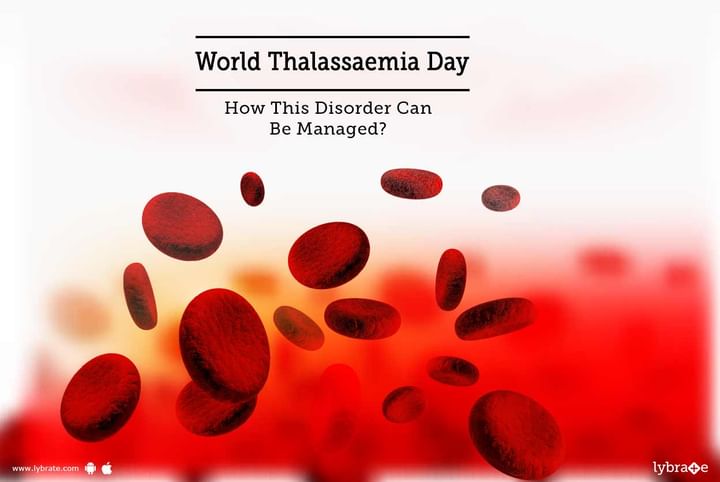World Thalassaemia Day - How This Disorder Can Be Managed?
Thalassaemia, which is commonly referred to as thal, is a disorder of the blood which is inherited from the previous generation. This condition triggers the production of abnormal red blood cells in the body which in turn paves the way for chronic anaemia. Red blood cells play an indispensable role in carrying oxygen all through the body and hence any abnormality in this regard can result in thalassemia, the symptoms of which include, weakness all over the body, fatigue, faint and shortness of breath.
Understanding the type of thalassemia:
Thalassaemia is often thought to be an iron deficiency disease (anaemia), but can be differentiated with the aid of certain blood tests. This disease is a lifelong condition which requires efficient management. The type of thalassemia an individual is suffering from can be attributed to the number of faulty genes the person has inherited.
The two variants of thalassaemia are beta and alpha. In the case of alpha thalassemia, having one faulty gene would lead to no health problems while two faulty genes can cause mild anaemia. If there are three mutated genes, it will cause Haemoglobin H disease, and regular blood transfusions may be required. But an unborn child with four mutated genes will not be viable enough to survive the pregnancy.
The beta thalassaemia also comes in various forms. The beta thalassaemia major needs lifelong transfusion of blood and it is the most common form of thalassaemia across the world. The beta thalassemia intermedia do not have to depend on blood transfusion.
Treating thalassaemia:
The treatment option for mild thalassaemia is entirely dependent on the type of the disease and how intense it is. When the disease is on a mild and minor level, then there may not be need of any comprehensive treatment. But at times, blood transfusions become necessary especially after undergoing surgery or when the thalassaemia causes complications.
People who are affected by severe levels of beta thalassaemia will require transfusion of blood from time to time. The treatment also causes an overload of iron and thus it is important to remove the surplus iron content. There are several oral medications available for this, and the healthcare provider can recommend suitable medications.
Managing moderate to severe thalassaemia:
Some of the most general methods of managing and treating thalassaemia include
- Frequent blood transfusions: When the thalassaemia gets too severe, it becomes necessary to opt for blood transfusion after every few weeks. The blood transfusion can cause iron build up with the passage of time. This, in turn, can affect the heart and lungs along with other crucial organs. Therefore, it is important to take medicines that can eliminate the extra iron.
- Stem cell transplant: Also referred to as the bone marrow transplant, the stem cell transplant can be the best bet. It is recommended for kids who are born with severe thalassaemia. This treatment option can mitigate the need of a lifelong transfusion of blood and intake of drugs for controlling the iron overload.



+1.svg)
